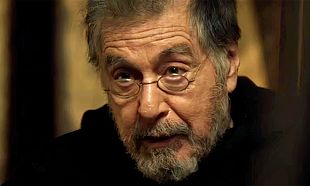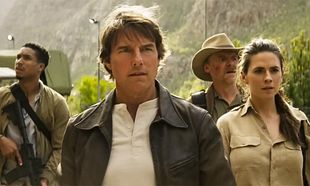Formed at the height of glam rock, Sparks - brothers Ron and Russell Mael - have spent five decades on the go and influenced countless musical acts in their wake. Now, director Edgar Wright attempts to chart their journey from obscurity to mainstream success to elder pop maestros...
Odds are if you haven't heard of Sparks, you'll know at least a few of their songs and maybe even like a couple of them. As a pop duo, Sparks have reinvented themselves again and again through the years. In the '70s, they were glam rock starlets with chart-toppers like 'This Town Ain't Big Enough For The Both Of Us'. At the end of the '70s, they practically invented synthpop and gave bands like Pet Shop Boys a reason to exist with the help of Giorgio Moroder as songs like 'Tryouts For The Human Race', 'The No.1 Song In Heaven' and 'Beat The Clock' spun up discotheques. By the '90s, they were releasing thoughtful art-pop hits like 'When Do I Get To Sing 'My Way'' and, now, in 2021, they're on the soundtrack of Leos Carax's breakout hit of the Cannes Film Festival, 'Annette'.
Put it simply, Sparks have made a name for themselves by bold choices that haven't always paid off but are still in keeping with their own artistic integrity and a deliberate choice to keep the audience guessing at all times. They're whimsical, they're weird, they know you can't pin them down and that's just how they like it. They were too smart, too funny, and too cynical for pop before any of those things were considered cool. It may be then that in participating in 'The Sparks Brothers' that for a band that's so skilfully avoided explaining themselves and revelled in the mystique of their public personas, they're finally telling it straight when they spent decades doing the exact opposite. So much of 'The Sparks Brothers' is standard, run-of-the-mill music documentary fare that - because it's Sparks - you're waiting for the other shoe to drop and for it all to switch itself up and take the piss out of itself. That doesn't happen. Not really, at least. There's a few charming bits of animation and acknowledgements of their own urban legends.
Still, 'The Sparks Brothers' is as straightforward as it comes. You have the gushing interviews with name-recognition celebrity fans like Flea from the Red Hot Chili Peppers, Mike Myers, Beck, Edgar Wright himself turns up for one or two of them. You've got the well-meaning but slightly rumbled interviews with band members who were thrown over the side when Sparks wanted to make a course correction. You have their own interviews, in which they speak frankly and openly about their low years without a record contract. It's all there, strung together with archival footage in full, garish colour, while the current-day interviews are painted in moody greys.
The choice to build a chronological story, fill it with interviews, cut in some animations here and there, and just generally give it the standard music documentary charge feels almost like a disservice to a band that's been so ardently experimental in their work. What you get from 'The Sparks Brothers' is that they're a group who have stridently gone against the grain, willingly, because they can't be arsed to follow the conventional path. What a shame, then, that the documentary - as good as it is - feels so conventional.













































































